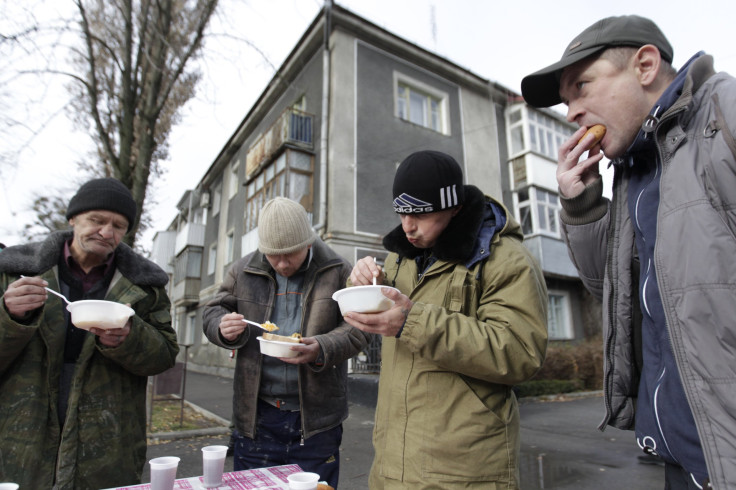Russia Poverty 'Critical' Amid Western Sanctions, Oil Price Dropping

Under the weight of Western sanctions and with the price of oil dropping, poverty in Russia has reached "critical" levels, according to a government official, reported the Moscow Times. Data from the Russian government showed a sharp uptick in the number of people living below the poverty line.
“Unfortunately, predictions are coming true: According to official statistics, the number of poor people has reached 22 million. This is critical,” Deputy Prime Minister Olga Golodets told a Russian television station, news agency Interfax reported, via the Moscow Times. Golodets oversees the Russian government's social policy.
An earlier report from Russia's state statistics service, Rosstat, said that the number of people below the poverty line rose to 22.9 million people in the first quarter of 2015, according to a Moscow Times report in June. That figure is up from 19.8 million for the same period in 2014. Russia's total population was estimated to be 144 million, according to Forbes, using Rosstat data. If the 22.9 million figure and the Forbes estimate (which removes Crimea from the data) are correct, then about 15.9 percent of Russia's total population lives below the poverty line. For comparison, the United States' percentage of the population below the poverty line has hovered at 14 percent to 15 percent in recent years.
Rising inflation in Russia has contributed to more people living in poverty. In March, the inflation rate in Russia hit its highest point in 13 years, with consumer prices rising 16.9 percent from the year before. The price increases were a result of Western sanctions on food imports from the West along with the collapse in the value of the ruble, according to the Moscow Times.
The economic sanctions from the United States and European Union -- which targeted Russia's state finance, arms and energy sectors -- were in response to Moscow's annexation of Crimea and its purported role in the conflict in Ukraine between pro-Russia separatists and the Ukrainian government. Russia's economy also is heavily dependent on exporting oil, which has seen a drop in prices. The Russian economy is expected to shrink by 3 percent in 2015, with investment tightened by Western sanctions and the steep drop in oil prices.
While inflation eased to 15.3 percent year-to-year in June, real wages were down 7.3 percent in May compared with the same period in 2014, according to Rosstat data. Unemployment in Russia is relatively low at 5.6 percent, but partial unemployment is rising quickly, with the number of part-time workers rising 8 percent.
© Copyright IBTimes 2025. All rights reserved.






















